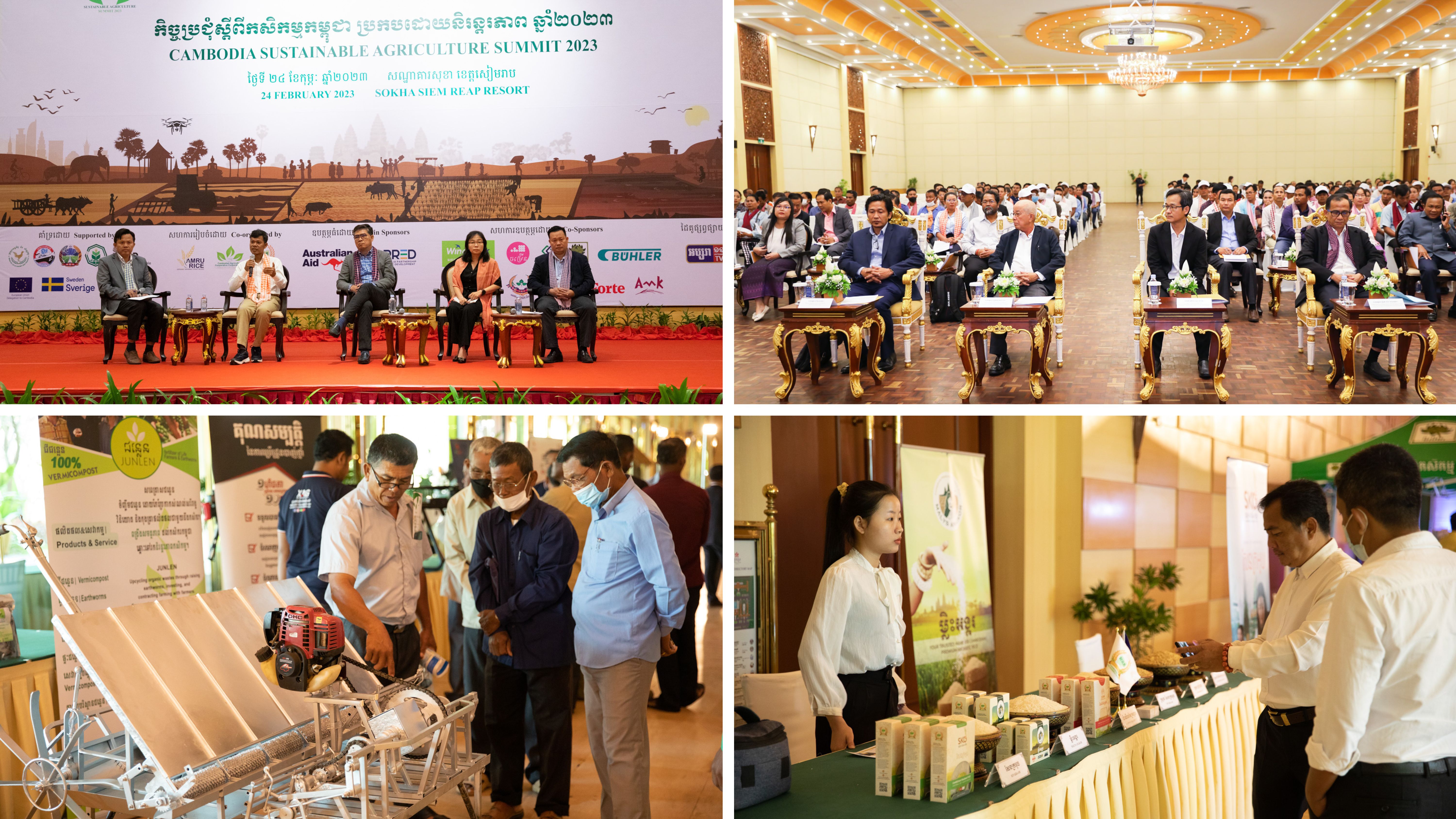
By Chakriya Khiev
Rising global prices for energy and agricultural inputs such as seeds and fertilisers, combined with the effects of climate change, are making it harder for Cambodian farmers to keep up with growing demand.
This was a key challenge raised at the third Agricultural Summit for Sustainable and Resilient Development this week in Siem Reap.
Theme for the 3rd Cambodia’s Sustainable Agricultural Summit is “Working together and broadening solidarity to harness sustainable resources for efficient and climate resilient agriculture development.”
We were pleased to join forces with Amru Rice Cambodia Co., Ltd and the Cambodia Rice Federation (CRF) to bring together over 400 representatives from agribusinesses, producers, farmers and development leaders. They discussed challenges and ways to build climate resilience, improve productivity, create decent incomes, and promote gender equality in agriculture mechanisation.
Ma Theou, 54, was one of the participants from Bonteay Meanchey province. He is a former soldier with a disability and has now become a laser land levelling service provider. Ma Theou has provided laser land levelling services since 2021, and now owns three levellers. This precision technology helps rice farmers reduce water consumption, improve input efficiency, and increase yields, while being more environmentally friendly.
“Using a laser land leveller helps increase the rice production yield from 2 tons per hectare to 7 tons per hectare and reduces water and diesel consumption, and weeds,” said Ma Theou. “This technology helps the rice ripen equally, so farmers can harvest rice at the same time. It adds more value to their rice production.”
“Floods damaged most of our crops last year, and this year, we have water shortages.”
He is hopeful that agricultural modernisation like this could be a solution to adapt to climate change.
Introducing modern technology to farmers in his community was a challenge at first because they did not trust it.
“During the first season, I leveled only 3 hectares of land because farmers didn’t recognise the benefit until they saw the result,” said Ma Theou. “Now, there is a lot of demand.”
Sourn Sophoan, CAPRED’s Agriculture and SME Lead, spoke at the summit on the vulnerability of agriculture to climate change and market variations. This is why we are working with the government, donors and private sectors to further modernise the agriculture sector.
“CAPRED encourages technologies such as drones and laser land levellers to modernise agriculture. This helps farmers by reducing their agriculture inputs, making farming more sustainable,” said Sophoan.
Cambodia’s rice production area decreased by 150,000 hectares in 2022, resulting in a production drop of over 500,000 tons, comparing to the previous year. Higher input prices of fertilisers, pesticides, energy, and climate change were big contributing factors
Dr. Mey Kalyan, Senior Adviser of the Royal Government’s Supreme National Economic Council (SNEC) said that climate change and food safety concerns demand sustainable sources.
“Cambodia’s food production is more natural than processed. We need to leverage this to gain market footholds and more benefit to farmers,” she said. “We should scale-up successful climate-smart solutions and bridge knowledge gaps through research and information sharing.”
Ma Theou said he gained much knowledge from the summit and was particularly interested in agricultural machinery.
“I will share this information and knowledge to farmers in my community, “said Ma Theou. “I focus more on farmers. When they can increase their production yields, our economy will also grow.”
Read more about CAPRED’s support to the Cambodian agriculture sector

